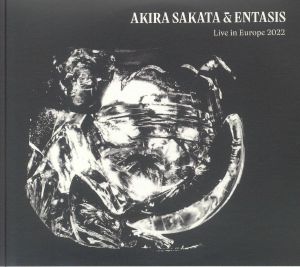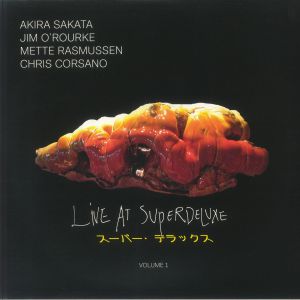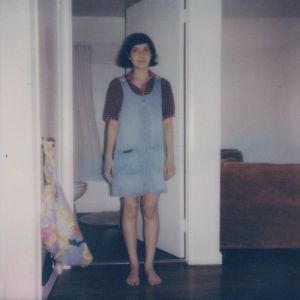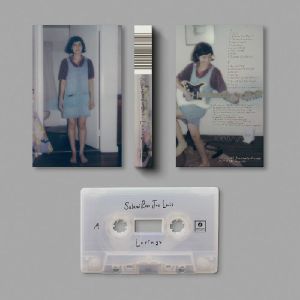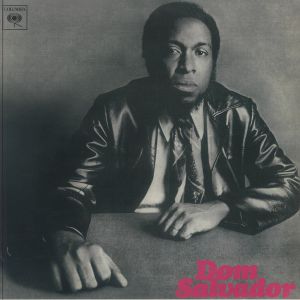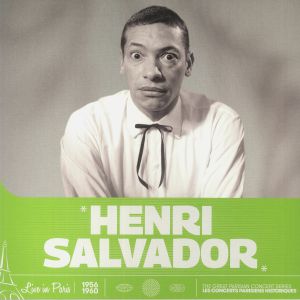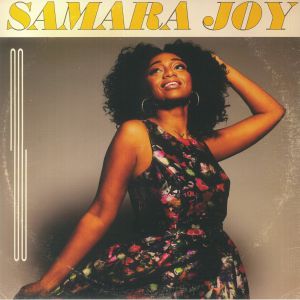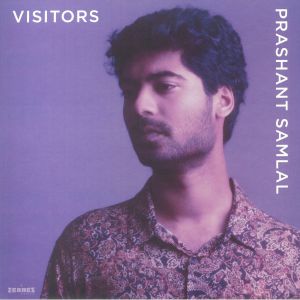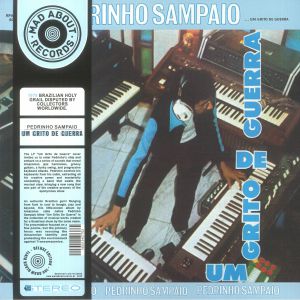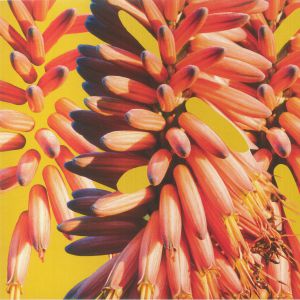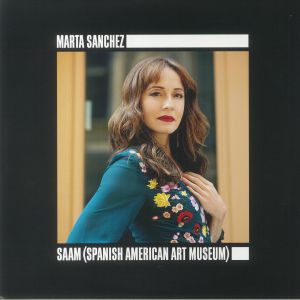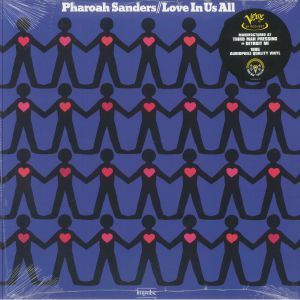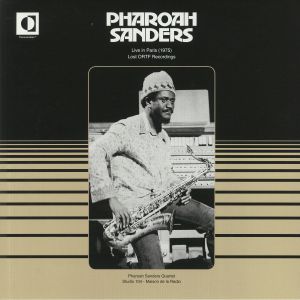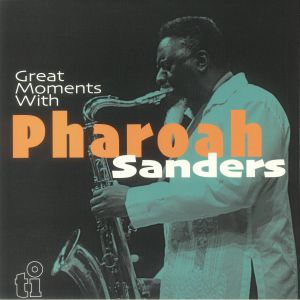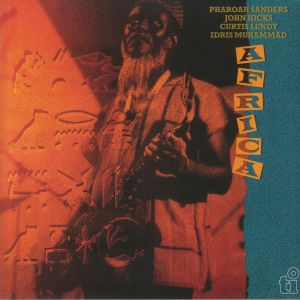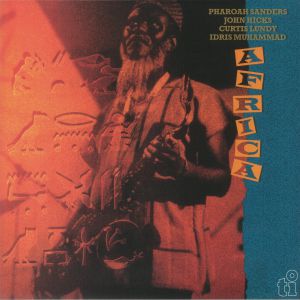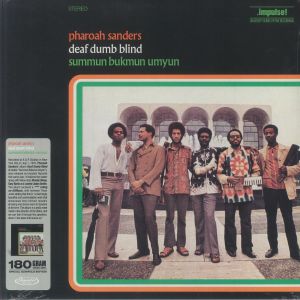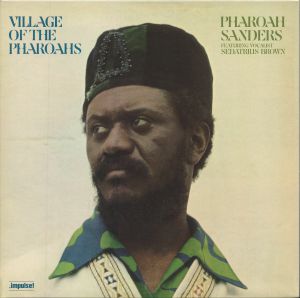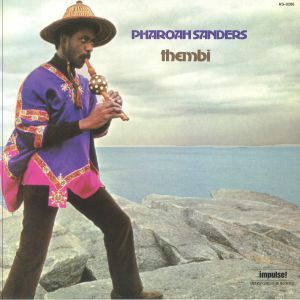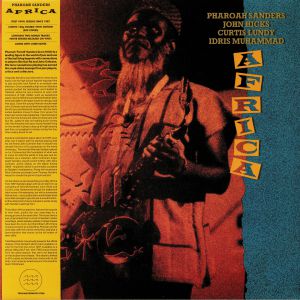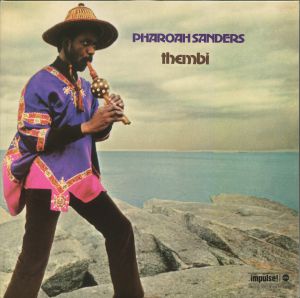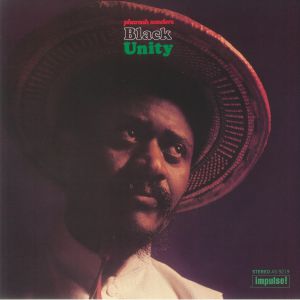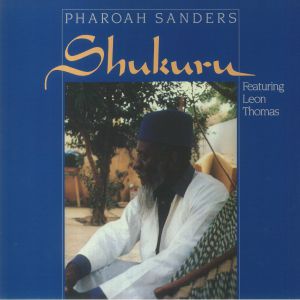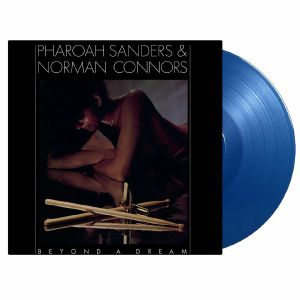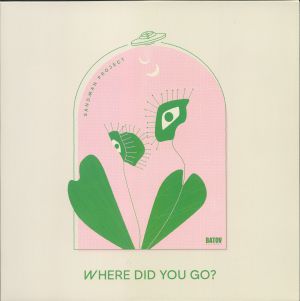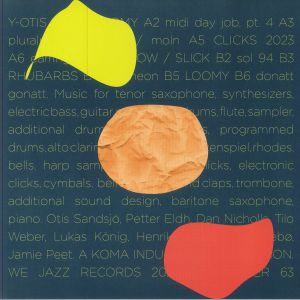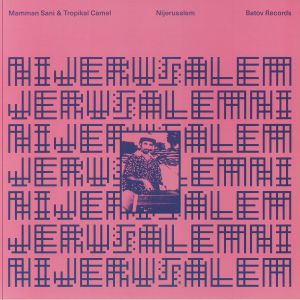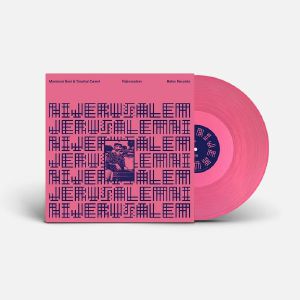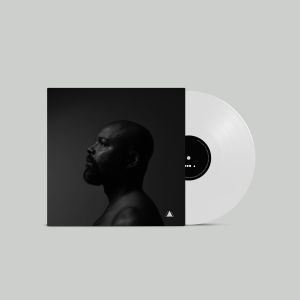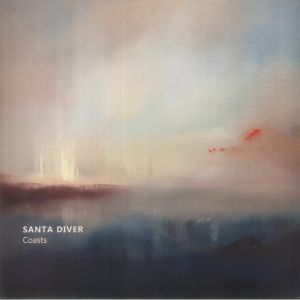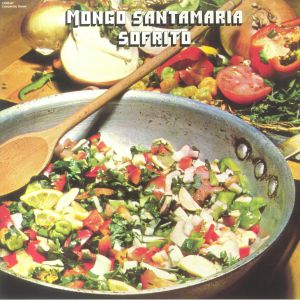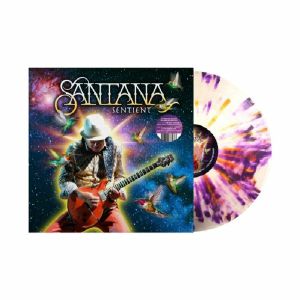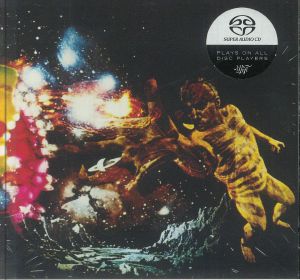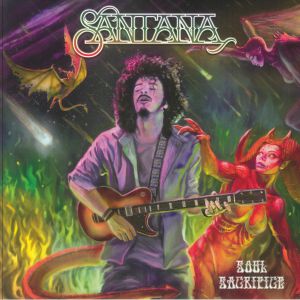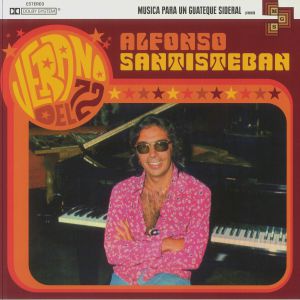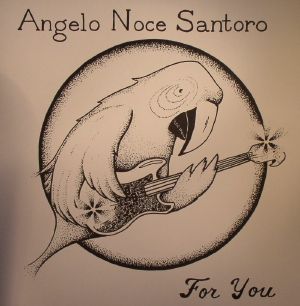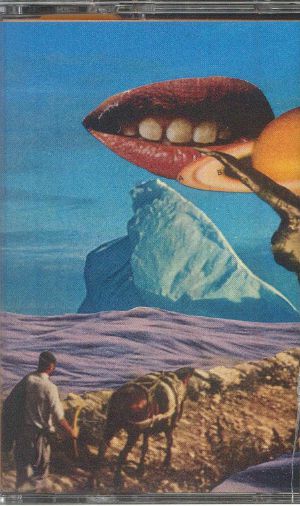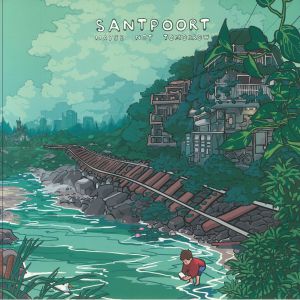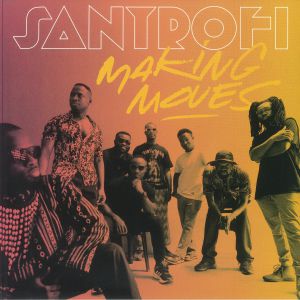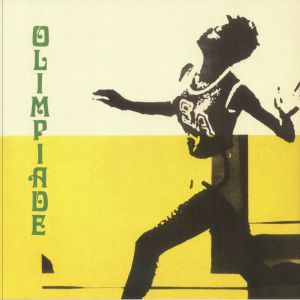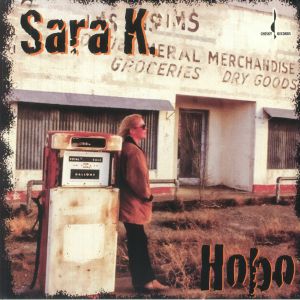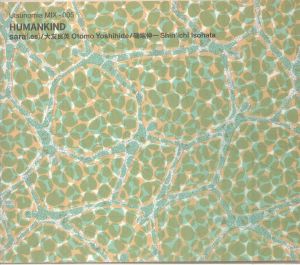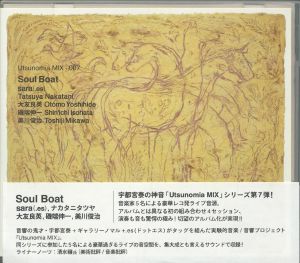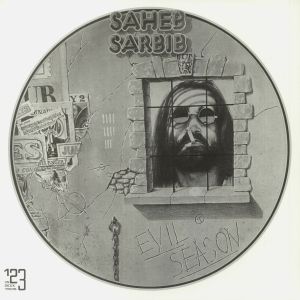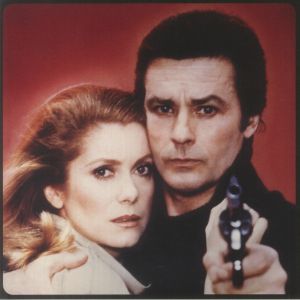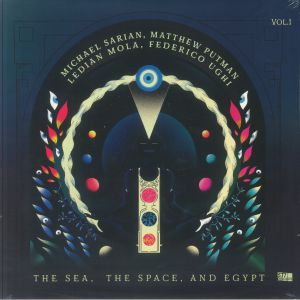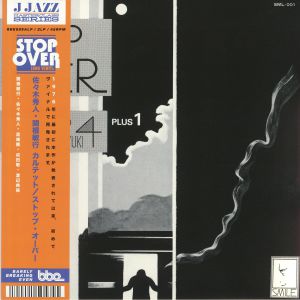Filter
Genre
Release Date
588
Not Forthcoming
6
Today
13
Last Week
19
Last 2 Weeks
26
Last Month
56
Last 2 Months
141
Last 6 Months
267
Last Year
Artist
Release Title
Price
Tags
Back catalogue:
Juno's full catalogue of
Álbumes
in stock $27.98
Live At Superdeluxe Vol 1 (orange marbled vinyl LP + MP3 download code)
Cat: CG 163800LP. Rel: 31 Dec 24
in stock $38.78
Intérprete: Juno Recommends Downtempo
in stock $24.11
in stock $20.78
Dom Salvador (reissue) (limited numbered 180 gram audiophile translucent magenta vinyl LP)
Cat: MOVLP 3686C. Rel: 12 Aug 24
Review: The landmark first album by Dom Salvador released in 1969. Exemplary of Salvador's characteristic blend of Brazilian rhythms and American jazz influences, the album flaunts a mix of samba, bossa nova and hard bop, highlighting Salvador's innovative approach and technical prowess. A bright and redolent sound wafts from the likes of 'Cantinflas' and 'O Rio', which build and burgeon as danceable motifs that would work equally as well for montage or opening sequences in film. Elsewhere, the more freeform rhapsodies like 'Pais Tropical' hear Salvador's piano in full sway.
… Read more in stock $37.95
in stock $30.20
Samara Joy (limited gatefold 180 gram gold vinyl LP)
Cat: WR 4776G2. Rel: 23 Mar 23
in stock $26.04
Samara Joy (gatefold 180 gram vinyl LP + MP3 download code)
Cat: WR 4776LPB. Rel: 18 Aug 22
in stock $30.20
in stock $32.13
Um Grito De Guerra (180 gram vinyl LP + insert + MP3 download code with obi-strip)
Cat: MAR 069. Rel: 06 Mar 23
Review: Originally pressed in 1979, 'Um Grito de Guerra' is an Amazonian hidden gem made for a production of the same name. The record invites you to enter Pedrinho's ship and embark on a series of sounds that encompass Amazonas jazz harmonies, groovy guitars, funky swing, and progressive keyboard attacks. The presentation focused on a few points, but the primary focus was rescuing the Amazonian identity and protecting the environment against Transamazonica. It's beautiful and nostalgic, sounding like the credits song for a classic sitcom, yet there's a fresh breeziness to it that can only be put down to Pedrinho's prowess on the ivory.
… Read more in stock $33.23
in stock $20.78
SAAM: Spanish American Art Museum (gatefold 2xLP (side 4 digitally printed) + MP3 download code)
Cat: WR 4784LP. Rel: 25 Aug 22
in stock $29.64
Love In Us All (Verve By Request) (gatefold 180 gram audiophile vinyl LP)
Cat: 752005 0. Rel: 17 Apr 25
Review: Finally reissued for its 50th anniversary, Love In Us All is a cosmic, uncompromising statement from legendary jazz cat Pharoah Sanders. This vital piece of the free jazz canon was released as his final Impulse! album and starts with 'Love Is Everywhere' which radiates transcendent beauty with layered horns, cascading piano and a repeated vocal mantra evoking the spirit of Coltrane's seminal 'A Love Supreme'. The flip, For John' is raw, chaotic and a furious outpouring of free jazz energy. Long out of print but here remastered, this essential release showcases Sanders' vision in its most fearless, spiritual form.
… Read moreIntérprete: Mukatsuku Records Chart, Juno Recommends Jazz
in stock $38.51
Cat: TRS 15. Rel: 15 Jun 21
Review: Here's something to set the pulse racing of any serious jazz enthusiast: a recently rediscovered recording of a live performance made by the Pharoah Sanders Quartet at the Grand Auditorium at Studio 104, Paris, in 1975. The tenor saxophonist is undoubtedly the star of the show throughout, though the fluidity of the double bass playing, the loose-limbed drumming and the rush-inducing breeziness of the piano parts - especially on "Love Is Here" parts one and two, which reminded us of another Sanders classic "You've Got To Have Freedom" - are all equally as ear-catching. Musically, it's as inspired as you'd expect, nestling somewhere between the great maestro's greatest "astral jazz" recordings and more traditional forms of jazz.
… Read more in stock $33.23
Great Moments With Pharoah Sanders (reissue) (limited numbered gatefold 180 gram audiophile blue vinyl 2xLP)
Cat: MOVLP 3289. Rel: 21 Feb 23
Review: 'Great Moments With Pharoah Sanders' is a compilation album spanning the best of Pharoah Sanders' work between the period 1983-1990, when the legendary spiritual jazz musician enjoyed the fallout of some of his best work. Despite his struggles to find quality work as a musician despite his high standing by that time, Sanders composed many great works in the period, such as 'Africa', 'Naima' and 'You've Got To Have Freedom' - all of which feature here.
… Read more in stock $38.51
in stock $36.01
Africa (reissue) (limited numbered 180 gram audiophile orange & black marbled vinyl 2xLP)
Cat: MOVLP 2947O. Rel: 18 Jul 23
in stock $41.28
Summun Bukmun Umyun (Deaf Dumb Blind) (reissue) (gatefold 180 gram vinyl LP)
Cat: 700236. Rel: 20 Nov 24
Review: Pharoah Sanders' 1970 album is an intense spiritual jazz offering, recorded in New York's A & R Studios. The title, which translates from Arabic as "Deaf Dumb Blind," is a reference to the Sura Bakara from the Qur'an, suggesting a deep, metaphysical exploration of faith and enlightenment. The album blends African musical influences with Sanders' signature improvisational style, offering a bold statement of musical and philosophical depth. The performance is raw and hypnotic, characterised by Sanders' powerful saxophone work, with the music pushing boundaries of both jazz and spiritual exploration.
… Read moreIntérprete: ISOUL8 (Volcov), Juno Recommends Jazz
in stock $29.64
Village Of The Pharoahs (reissue) (gatefold 180 gram vinyl LP)
Cat: 700233. Rel: 13 Sep 24
Review: Elemental Music's latest release brings a long-awaited reissue of Pharoah Sanders' 1973 album Village of the Pharoahs, finally available on vinyl after decades. This record stands as one of Sanders' most groundbreaking works, blending spiritual jazz with free improvisation. The album is a masterclass in musical exploration, featuring a stellar lineup including Joe Bonner, Cecil McBee, and Stanley Clarke. Side-1 launches with the pulsating title track, a three-part suite that immerses listeners in complex rhythms and modal saxophone lines. Side-2 continues with the ethereal 'Mansion Worlds,' before shifting into the balladic 'Memories of Lee Morgan,' and concluding with the lively 'Went Like It Came,' a surprising, foot-tapping closer. Considered one of his best releases by the majority, this listen is ideal for both seasoned jazz lovers and those new to the genre.
… Read moreIntérprete: Juno Recommends Jazz
in stock $29.64
Thembi (Verve By Request) (gatefold 180 gram audiophile vinyl LP)
Cat: 652257 3. Rel: 08 Aug 24
Review: Pharoah Sanders recorded Thembi in the winter of 1970-71, amid sessions with Alice Coltrane that would culminate in her seminal Journey In Satchidananda album. The same profound spirituality that imbued Coltrane's masterpiece with an aura of serene majesty also permeates Thembi. One of the standout tracks, 'Astral Traveling,' originated from a serendipitous encounter with a Fender Rhodes electric piano. Upon arriving at the California studio, while his bandmates set up their instruments, Sanders noticed the piano and, driven by curiosity, began experimenting with its sounds. This track, with its ethereal quality and innovative use of the electric piano, captures the exploratory spirit and transcendent quality that define Thembi, making it a cornerstone of Sanders' discography and the blueprint to the serendipitous magic of musical experimentation. Thembi offers something very unique for the time in jazz music.
… Read moreIntérprete: Juno Recommends Jazz
in stock $34.63
Africa (reissue) (limited 180 gram vinyl 2xLP with obi-strip)
Cat: TWM 25. Rel: 24 Apr 19
Review: Although "Africa" is not one of the harder Pharoah Sanders albums to find on vinyl, jazz heads have long complained about the sound quality of the original single-vinyl edition of the 1987 album. It's for this reason that this Tidal Waves Music reissue, which stretches the set across two slabs of wax and adds two previously CD-only tracks ("Heart To Heart" and "Duo"), will simply fly off the shelves. That and the fact that it remains a superb album: a bright, breezy, contemporary jazz masterpiece that sees the legendary saxophonist accompanied by drummer Idris Muhammad, pianist John Hicks and bassist Curtis Lundy. Highlights include the arguably definitive version of Sanders' classic "You've Got To Have Freedom" and a superb update of John Coltrane standard "Naima".
… Read moreIntérprete: Juno Recommends Jazz
in stock $48.48
Thembi (limited gatefold 180 gram vinyl LP)
Cat: 700218. Rel: 07 May 24
Review: Pharoah's Thembi stands out as one of his most accessible albums. Recorded at The Record Plant, which was renowned for hosting iconic sessions like Hendrix's Electric Ladyland, the LP boasts a lush, atmospheric sound. The studio's history includes a heroic tape rescue during a 1978 fire which preserved invaluable recordings such as this. Lonnie Liston Smith's debut on the Fender Rhodes sparked the track 'Astral Travelling,' into life but was criticised by some at the time as "easy listening" compared to Pharoah's more intense works. Yet, its serene vibe offers a refreshing departure that showcases Pharoah's versatility and the album's enduring appeal.
… Read moreIntérprete: Juno Recommends Jazz
in stock $29.10
Black Unity (Verve By Request Series) (gatefold 180 gram audiophile vinyl LP)
Cat: 552123 6. Rel: 13 Jul 23
Review: Pharaoh Sanders has many high-points in his illustrious career, but Black Unity is a truly special, long-form body of work stretching out over 37 minutes of mesmerising, sustained groove. Widely hailed by critics as one of Sanders' most revealing works, he's joined on the 1971 session by Marvin Peterson on trumpet, Carlos Garnett on flute and tenor sax, Joe Bonner on piano, Stanley Clarke and Cecil McBee on bass, Norman Connors and Billy Hart on drums and Lawrence Killian on percussion. Between them, the ensemble guide us through ebbs and flows of majestic power, all elements flowing into one another in a true expression of the unity Sanders spelt out in the title.
… Read moreIntérprete: Juno Recommends Jazz, DJ ROCCA
in stock $37.41
Shukuru (remastered) (limited 180 gram audiophile vinyl LP)
Cat: TR 121. Rel: 25 Oct 22
Review: We write this just a few days after the sad passing of Pharoah Sanders, one of the great jazz musicians of his generation. It lends the music an extra air of potency, not that it really needed it. This one is an album that is noted for being the one that reunited Sanders with vocalist Leon Thomas, who in years previous appeared on some of Sanders' most endearing tunes. Many tunes here are defined by the use of Henderson's synthesizer but for opener 'Shukuru' and closing funereal piece 'For Big George'. Both are some of the album's highlights.
… Read more in stock $41.56
Beyond A Dream: Live At Montreux Jazz Festival (limited numbered 180 gram audiophile blue vinyl LP)
Cat: MOVLP 3634C. Rel: 07 May 25
Review: Pharoah Sanders, the legendary saxophonist known for his spiritual jazz and drummer Norman Connors, another key figure in the genre, deliver a blistering live performance at 1978's Montreux Jazz Festival set. The duo, both with decades of experience shaping the sound of free jazz, blend complex rhythms with expansive melodies, weaving through tracks like 'Babylon' and 'Casino Latino.' Sanders' saxophone improvisations glide between tension and release, while Connors' drumming provides a solid yet dynamic foundation. This recording encapsulates their mastery of blending the spiritual with the free, two jazz icons at the height of their craft, delivering a performance that is at once urgent and transcendental.
… Read more in stock $32.13
Review: Sandman Project's Royal Family EP blends West African rock psychedelia with Ethiopian jazz and is defined by its impressive improvisational vigour. Led by guitarist Tal Sandman from Tel Aviv's Jaffa, the instrumental group draws inspiration from Ethiopian jazz pioneers which is evident in tracks like 'Hamsa' with its evocative trumpet and moody Tezeta scale. Lead single 'Circles' exudes punk-like rawness with its gritty bass and driving rhythm. 'Savannah Trip' conjures Sun Ra in the Malian desert, offering atmospheric guitar explorations. Throughout all the cuts, Sandman Project's cinematic style invites listeners into a realm of playful melodies and mountainous textures.
… Read moreIntérprete: Juno Recommends Broken Beat Nu Jazz
in stock $21.33
Embracing Dawn (limited blue vinyl LP)
Cat: 673203 120914. Rel: 27 Sep 24
in stock $27.15
Y Otis Tre (LP + insert in spot-varnished sleeve)
Cat: WJLP 63. Rel: 28 Mar 24
in stock $26.32
Intérprete: AfroBase (Radio Chart), Juno Recommends Downtempo
in stock $23.26
in stock $27.15
in stock $27.98
Coasts (hand-numbered LP limited to 200 copies)
Cat: KARLP 033. Rel: 24 Jan 23
in stock $48.21
Review: Yet another first time reissue of a classic, Mongo Santamaria's 'Sofrito'. Don't be confused by the pico de gallo on the front cover; this isn't a salsa album, but rather a career-defining jazz, Afro-Cuban music and funk selection of delights. First released in 1976, it was the master conguero's (conga player's) most defining album, and now gets a proper remaster by Kevin Gray.
… Read moreIntérprete: Craig Charles Funk And Soul, Juno Recommends Jazz
in stock $36.29
Sentient (clear orange & purple splattered vinyl LP (indie exclusive))
Cat: 708857 335367. Rel: 22 Apr 25
in stock $37.13
Santana III (limited numbered SACD)
Cat: UDSACD 2158. Rel: 18 Nov 24
in stock $43.50
Soul Sacrifice (reissue) (limited gatefold green, white & red split coloured vinyl LP)
Cat: CLE 5289. Rel: 01 Oct 24
in stock $31.86
Review: In spring 2002, this collection of compositions by the renowned Alfonso Santisteban debuted on CD and soon became a staple on dance floors at exclusive clubs and events like that year's Fashion Week and the grand reopening of the iconic Cafe Oliver. It was also embraced by Berlin's lounge, easy listening and Brazilian-inspired groove scene so found plenty of homes on various compilations of the era. Tracks like the funk-fueled 'Persecucion,' the Brazilian-tinged 'Brincadeira' and the kitschy delight 'Strawberry Flavor' cemented its status as an artistic gem. This is the sort of diverse and tasteful record that will come in handy in myriad different settings and seasons.
… Read more in stock $33.80
For You (remastered) (LP + insert)
Cat: PHS 023. Rel: 28 Apr 15
Intérprete: Manu Archeo, Sock Free Hideaway
in stock $24.93
Hi! Who Are You? (cassette + MP3 download code limited to 90 copies)
Cat: MMTAPES 003. Rel: 31 Aug 22
in stock $20.51
in stock $29.36
Intérprete: AfroBase (Radio Chart), Juno Recommends International
in stock $24.38
Olimpiade (LP + poster)
Cat: LTJC 018. Rel: 16 Jan 25
Review: In 1971, this revered figure of Italian jazz, facilitated a remarkable session that brought together a talented ensemble of musicians, including trumpetist Francesco "Cicci" Santucci, saxophonist Enzo Scoppa and renowned keyboardist Franco d'Andrea. This collaboration, recorded at Umiliani's Sound Workshop studio in Rome, resulted in a brilliant jazz-funk album that blends intricate rhythms with melodic improvisation. Santucci and Scoppa, both seasoned in the late 50s Italian jazz scene, are joined by Belgian organist Joel Vendrokenbrak, adding a unique flavor to the mix. The album features d'Andrea on electric piano, a precursor to his future work with the progressive jazz group Perigeo. Originally released under a different name, this album is now reissued for the first time with its striking original cover art. The reissue includes a poster and a printed insert featuring images of the Sound Workshop studio, offering a deeper connection to the historical significance of the recording. With its masterful blend of jazz, funk and Italian creativity, this reissue is a significant addition to any collection of rare and influential jazz recordings.
… Read more in stock $37.67
in stock $34.08
Humankind (CD)
Cat: NOMART 126. Rel: 28 Dec 23
in stock $20.51
Cat: NOMART 128. Rel: 09 Jul 24
in stock $20.51
in stock $45.43
Le Choc (Soundtrack) (remastered) (gatefold LP)
Cat: RGOR 04. Rel: 01 Dec 22
in stock $26.58
Cat: 5937. Rel: 04 Feb 25
in stock $29.64
in stock $28.26
Stop Over (gatefold 2xLP with obi-strip)
Cat: BBE 589ALP. Rel: 24 Mar 20
Review: It would be fair to say that the latest edition in BBE's 'J-Jazz Masterclass' series of reissues is exceedingly rare. In fact, when it first appeared on Smile Records in 1976, only 100 copies of Hideto Saski-Toshiyuki Sekine Quartet's "Stop Over" were ever produced. The album's rarity is impressive, but it's the quality of the all-acoustic set of hard-bop workouts that makes it an essential purchase. As you might expect, there's plenty to set the pulse racing throughout, from the high-octane rush of opener "Carole's Garden", where dizzying piano solos catch the ear, to the similarly hectic and arguably even more rush-inducing "Stop Over" (a ten minute cut of epic proportions), via the sweet, sparse and contemplative "Soultrane".
… Read more in stock $29.10

 USD
USD





